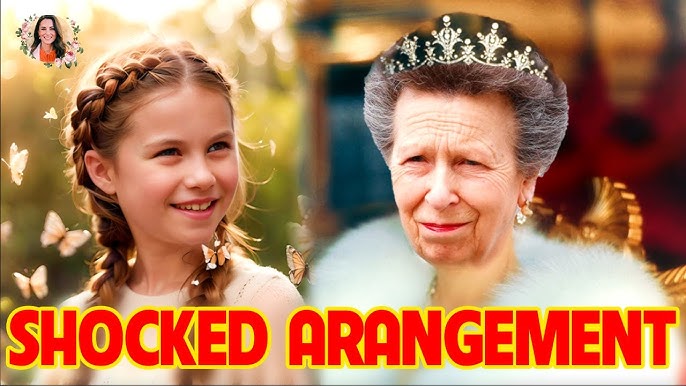
Princess Anne has made the historic decision to transfer her royal title to her grandniece, Princess Charlotte, as King Charles recovers from cancer, prompting Buckingham Palace to make difficult decisions regarding the monarchy’s future. Reports indicate that King Charles, facing health challenges, has begun preparing for posthumous arrangements and has opted to cease his regular cancer treatment. This decision underscores his deep concern for the monarchy’s legacy and his belief that Anne, long regarded as one of the hardest-working and most respected royals, is best suited to help guide the next generation.

Princess Charlotte, born on May 2, 2015, is the second child of Prince William and Princess Catherine. Her position in the royal family is unique, influenced by rule changes that affect her titles and succession rights. In a thoughtful act of foresight, Princess Anne has decided to pass her distinguished title, Princess Royal, to Charlotte. This marks a significant step in Charlotte’s role within the family. Anne herself was only given the title in her mid-30s, a prestigious honor traditionally reserved for the eldest daughter of the reigning monarch.
Now 74, Princess Anne is encouraging her nephew, Prince William, to grant this cherished title to his daughter, Charlotte. Royal sources reveal that Anne supports the idea of nine-year-old Charlotte eventually becoming the eighth Princess Royal. While Anne has held this title with pride and dignity, she is preparing to relinquish it in time, considering her own children, Peter Phillips and Zara Tindall, have shown limited interest in active royal duties. Anne has shifted her focus to mentoring young Charlotte, offering her invaluable advice on the complexities of royal life.

According to a palace insider, Princess Anne and Charlotte frequently discuss a wide array of topics, from women’s football and ballet to royal protocol and fashion. “They’re talking about everything and anything,” the insider noted, adding that Anne is preparing Charlotte to embody the qualities of a perfect princess and, one day, a future queen.
